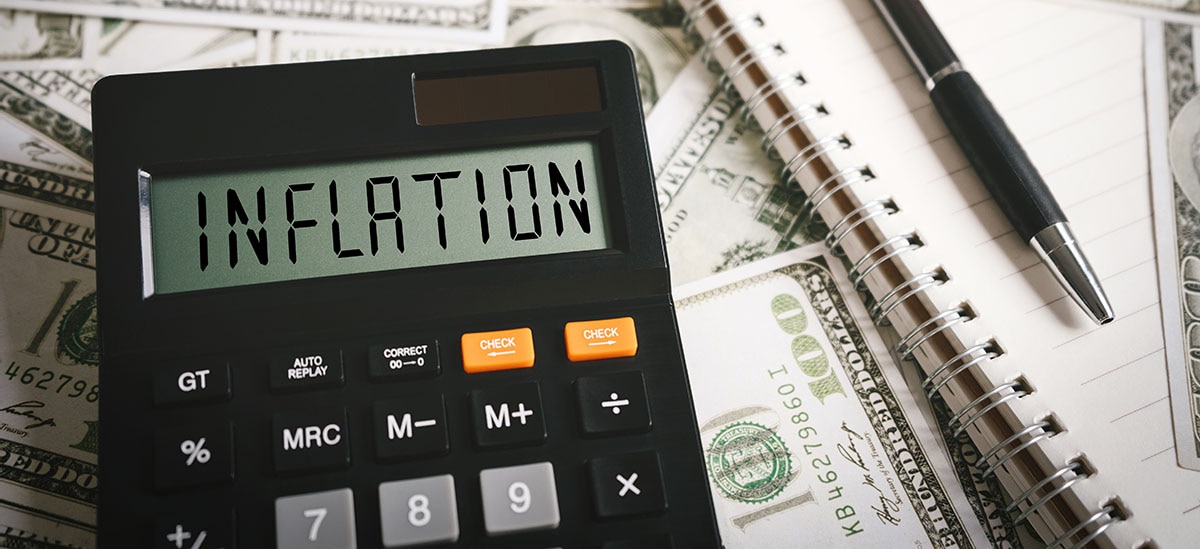
With growing inflation and high summer gas prices, consumers may be left wondering how they can get and stay ahead during turbulent economic times.
One key to comfort for consumers is remembering that when it comes to the economy, nothing is permanent, said PNC Chief Economist Gus Faucher. Economic cycles, good and bad, can last extended periods of time, but they won’t last forever.
“We tend to get wrapped up in whatever is happening at any given point in time, but forget that long-term, the economy goes through positive and negative cycles,” Faucher said. “Ultimately, one of the best strategies is patience.”
Inflación: It’s nothing personal. Or is it?
Looking long-term can be tough when pressures like inflation stretch household finances in the relative short-term. For many, the price of goods at the grocery or department store continues to rise while income levels stay the same. Overall, inflation in the summer of 2022 is at its highest level since the early 1980s, driven by higher gasoline and food prices. Even with the more volatile energy and food factors removed, the core Consumer Price Index has risen steadily year over year indicating strong inflation throughout the economy. 1
Inflation, though, doesn’t treat or impact everyone the same way. Its effects are relative to each household or business’ expenditures. While rising food prices affect nearly all consumers, the growing costs of leisure travel or other discretionary purchases are more controllable with budgeting and planning.
“When it comes to inflation and impacts on everyday necessities, there are certain expenses that we’ll all feel in much the same way,” Faucher said. “But every consumers’ situation is unique, and the overall impact of inflation and opportunity to adjust is specific to each household.”
Less isn’t more – or even practical
One seemingly simple solution to the pressures caused by inflation or higher than normal gas prices is to consume less overall. But while making smart decisions about consumption and evaluating where cost-savings can be achieved is a smart plan in any economy, it’s not practical for consumers to always sacrifice needed goods or transportation in periods of high inflation.
There may be opportunities to change spending, find lower-priced brands or substitutes, change commuting patterns, or cut down on discretionary spending like restaurant meals or travel in tough economic times. Those opportunities may have their own costs, though in impacts to health, jobs or personal happiness.
Playing the Long Game
Just as expenses are unique to each consumer, so too are savings and investments. While inflation causes the cost of goods and services to rise and many consumers to dip into liquid savings to cover everyday expenses in the short run, they may also begin to notice troubling trends in their investment accounts like we have experienced to-date in 2022. Inflation itself isn’t driving markets lower, but rather the implications for much more restrictive monetary policy and tighter financial conditions than over the last few years. This, in turn, is driving growth expectations down and the price investors are willing to pay for those earnings down too.
It’s been a particularly painful year, as both stocks and bonds have been hard hit, making it a nowhere to run, nowhere to hide kind of year so far for investors,” said Amanda Agati, PNC Asset Management Group chief investment officer. “In high volatility regimes, the wild market swings can be particularly jarring for investors, oftentimes spurring hasty decision-making in an attempt to soften the immediate blow to account balances.”
The reality for most investors is that the best policy during a particularly tough economic and market environment is to refrain from making drastic changes to portfolio allocations. Small adjustments to rebalance can have positive impacts. As economic conditions improve, so too should market performance.
“Conversations covering topics like spending rates, liquidity needs, market volatility, shortfall risks, and even the magnitude of potential market drawdowns should always be a part of any investment program in order to ensure asset allocation and overall portfolio positioning can put you in the best possible situation to achieve your financial goals,” Agati said. “Especially during volatile market times, you have to know what you own and equally important is an understanding of why you own it to help stay the course.”



